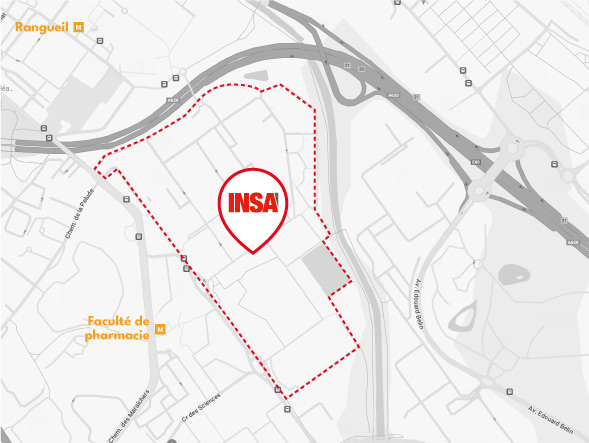Program (detailed contents):
Modeling with PDE (nonlinear PDEs in one dimension space)
1. Ecology, Population Dynamics, Epidemiology (reaction-diffusion equations)
2. Traffic, Ecology (forest fire): nonlinear advection equations
3. Wave propagation phenomena (elliptic equations)
Elliptic equations : analysis and simulation
1. Variational formulation: weak derivatives, weak solutions, Sobolev spaces
2. Finite element methods (in one dimension space): Galerkin methods, P1 and P2 elements, convergence and error estimates, qualitative properties
Hyperbolic equations: analysis and simulation
1. Method of characteristics, weak solutions, formation of shocks in finite time, maximum principle
2. Finite volume methods (in one dimension space): centered and upwind schemes, discrete maximum principle, order 1 and 2 methods.
Objectifs
At the end of this module, the student will have understood and be able to explain (main concepts):
¿ Main PDE models found in the literature in biology, ecology, physics and engineering.
¿ Notions of weak derivatives, weak solutions and variational formulations
¿ Finite elements and finite volume methods: formulation, implementation and convergence.
The student will be able to:
¿ Derive a variational formulation of an elliptic problem
¿ Implement finite elements method in 1d for elliptic equations.
¿ Solve nonlinear scalar hyperbolic equations with method of characteristic
¿ Implement finite volume method in 1d for hyperbolic equations.
Pré-requis
Ordinary differential equations : modeling, existence of solutions, qualitative study, numerical simulation (convergence, stability, order)
Introduction to PDE (EDP1): linear equations, analytic resolution, finite difference methods
Évaluation
L’évaluation des acquis d’apprentissage est réalisée en continu tout le long du semestre. En fonction des enseignements, elle peut prendre différentes formes : examen écrit, oral, compte-rendu, rapport écrit, évaluation par les pairs…













